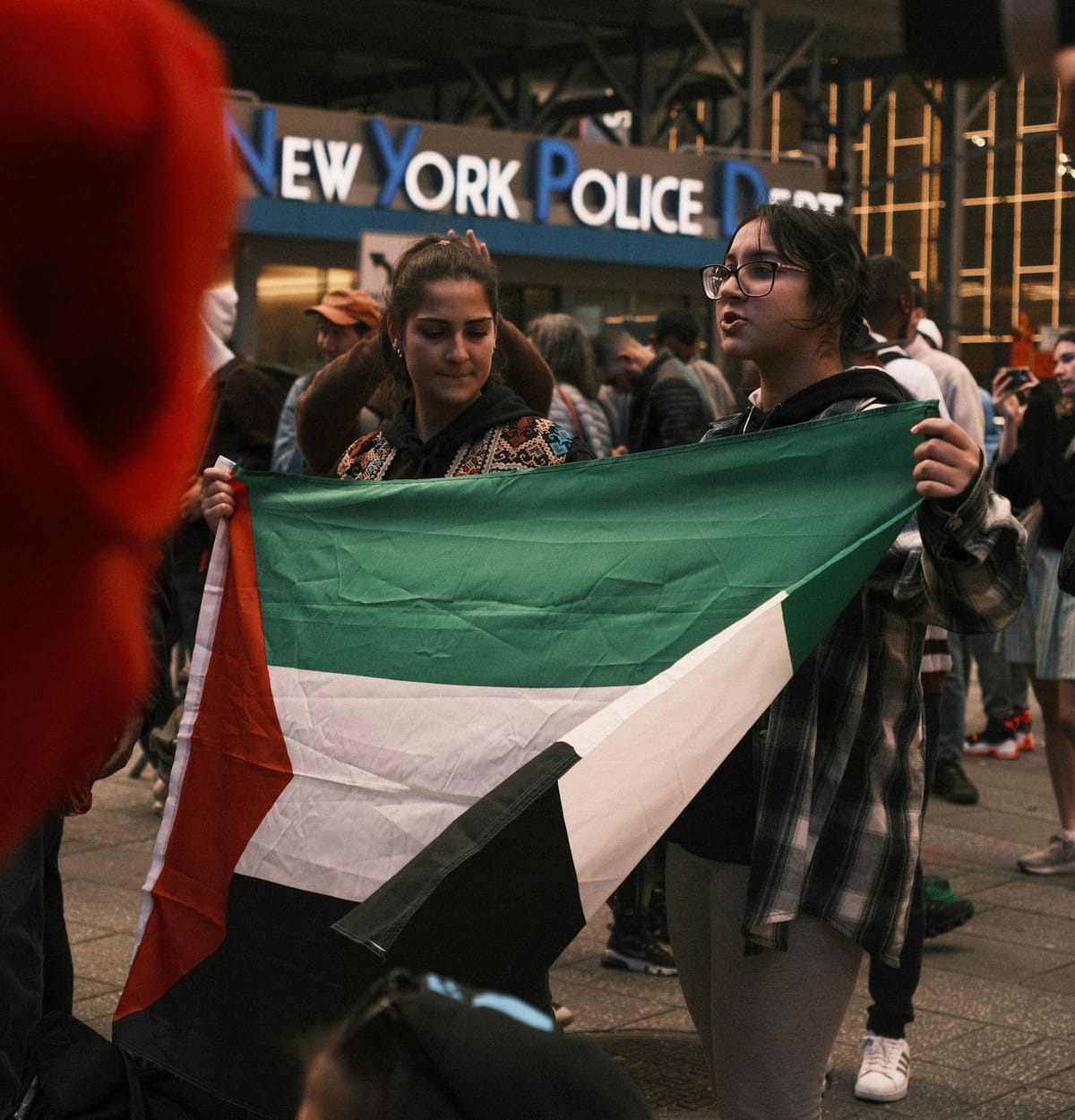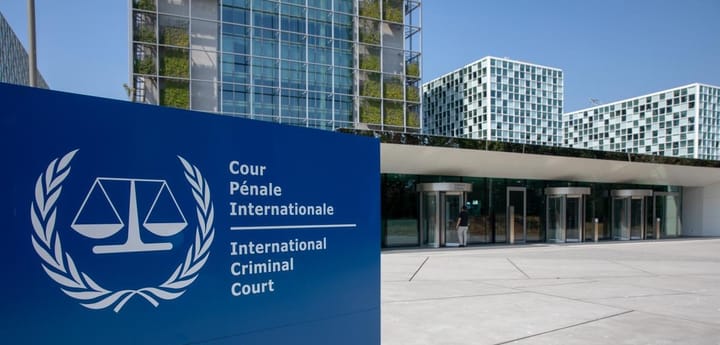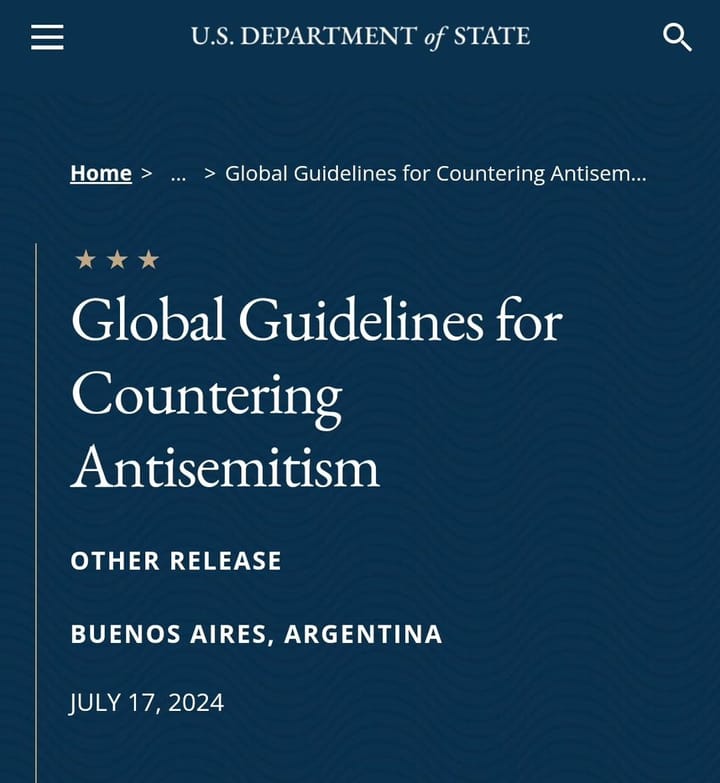WHY 146 States Recognize a Palestinian State: BUT Palestinians Don't Recognize a Palestinian State

Some estimates identify that as many as 146 United Nations General Assembly states recognize Palestine's statehood.[1]. However, Palestinians do not recognize the Palestinian state the international community is proposing. This shows without doubt that the foreign recognition of a Palestinian state will not solve the existing conflict with Israel. As a matter of fact, as far back as 1947, the two-state solution was kicked against by the Palestinian community leaders.
While some states have thrived through poorly configured international recognition, many do not do well if they are grouped together by international pressure. Many failed states in the world today were simply boundaries recognized by the international community.
The issue with a Palestinian state is far deeper and has more complications. A top-down model will never work in this conflict – and blaming Israel will not solve the issue either.
Let’s break down the drivers of the factors that culminate in Palestinians not recognizing a Palestinian state when most states do.
Palestinians have Options
Since 1947, Palestinians have always had several states in the region, vowing to stand by them to annihilate Israel.
One is forced to imagine what the reality would be if these groups of regional players decided to underwrite a Palestinian statecraft process. This could have led to a consistent approach to creating a functional economy, developing vital state institutions, and steering the Palestinians to build a viable state incubation process.
However, this was never meant to be. In its stead, there has been an unending chain of neighboring states that encouraged Palestinians to believe violence can destroy the state of Israel.
Through the Cold War, the Palestinian struggle was used as a tool for influence from both sides of the Iron Curtain. This culminated in the United States' presentation of the Two State Solution.
While some politicians today present the Two-State Solution as an absolute position, the two parties never accepted it on the ground.
In 1947, the Palestinians rejected the Partitioning Plan by the United Nations.
In the 1967 War, the Jordanians and Egyptians, in a protective capacity, failed to hold on to lands they controlled militarily.
Thus, from a critical lens, the two sides never accepted the Two State Solution. There were always options for Palestinians.
And the options of the Palestinians became
Since 1948, Palestinians have had notions of alternatives that could include a perpetual war against Israel. Therefore, when the Palestinian Authority accepted the Two State Solution in principle, Hamas and other radical groups rejected it.
The Palestinian hardliners rejected the Two State Solution because they knew they had options in other states around the region. Khaled Meshaal is on record for saying Hamas' leadership must "remind" other Islamic countries and countries sympathetic to the Palestinian people of their "promise". This shows clearly that the Palestinians look up to some kind of support to fund a guerilla warfare system.
These options keep the Palestinian leadership divided perpetually. While one group supports war to annihilate Israel, another group appears to be leading a path toward a peaceful settlement of the conflict with Israel.
PA: Kleptocracy and Terror Support
America's reputation in the Middle East and the Islamic world is hostile. Thus, different notions exist about how a US-sponsored government and its funds must be used. These range from the notion that US donations and funds are religiously unpermitted to active notions of the need to embezzle American donations—even if they are meant for poor, starving locals.[2][3].
The United States fundamentally underwrote the Oslo-brokered Palestinian Authority. So automatically, significant sections of Palestinians link the PA with America and consider it illegitimate.
This is the first crack that shows the current framework for statehood is not accepted by the Palestinian people.
In an environment like the one the PA thrives in, all officials need is to be elected. Once they are elected, accountability is lax. First of all, as a foreign creation, it is easy to connive with others to form an elite who siphon off aid money without consequences. Second, there are hardliners who will always be useful in claiming that all those funds are illegitimate and must be shunned. Altogether, accountability is almost non-existent in many instances for the PA.
Thus, kleptocracy is the system established by the elite linked to the PA. Corruption always emanates from the top. Suppose any government employee has a corrupt supervisor. In that case, the notion is that corruption is accepted, so they innovate and find ways to embezzle funds meant for the masses. Corruption becomes the norm if there is no way of holding officials to account.
Since winning an election is all that matters, PA authorities do what they have to do to win elections. One of them is to pay families of people involved in terror against Israel.
In a society where winning an election is all that matters – people will do what they must to win. And in a society where anger against Israel is firmly entrenched, an entire communication sector exists that makes support for terrorists' families a virtue. And this wins elections and boosts popularity.
Hence, the “pay-to-slay” policy is inherent in the PA’s actions. Any candidate who condemns it or withholds funds for such families will face a backlash.
Overall, the PA's top-down recognition approach is problematic. It does not encourage the creation of a functional state where people can express themselves as they should.
As such, the external recognition system is highly problematic unless it is backed by a state incubation process that functions from the bottom to the top. If power is left in the hands of a few, they will steer the Palestinian people according to their will, and the PA's actions have shown that.
Hamas: Violence & Destruction of Israel
Two major groups of Palestinians are repulsed by the PA for different reasons.
Some authentically feel the PA has failed and, therefore, refuse to recognize them as the legitimate ruling authority for Palestinians. Many of them are Fatah members who live under recognized PA rule. They expect more from the PA and refuse to acknowledge it in good faith due to corruption, inefficiency, and other issues.
Then, there are the hardliners and radical Islamists, Hamas, who maintain popular anti-Israel positions. They opposed the PA from the days of Yassir Arafat and continue to mobilize anti-PA sentiments to hold on to their position[4].
Hamas creates a convergence point for hardliners. Any Palestinian aggrieved by the PA for any reason is welcomed into the camp of Hamas. And the idea is to use violence to unseat the state of Israel.
While Hamas has changed its façade on many occasions, the October 7, 2023 attacks showed the fundamental intent and desire of the group.
Hamas relies on regional support from neighboring states. Unlike a Sunni militia or Shiite-backed militia, Hamas appeals universally to all Islamic countries. They frame their ideology to look as if Israel is at war with all Muslims on the planet. They present themselves as fighters for Islam.
In return, support for Hamas and its appearance as a pro-Hamas government grants political benefits to leaders of Islamic countries. There is always a populist group in Islamic countries that can mobilize support by presenting messages that parallel Hamas' ideology. This allows Hamas to gain leverage in the Middle East, North Africa, and beyond.
On the other hand, some Islamic governments have found it necessary and expedient to suppress Hamas and related groups in their territories. That is because after uniting anti-Israel elements, the next thing that almost always happens is that pro-Hamas groups question the legitimacy of the government of the state they live in. Thus, many Islamic countries have limits on the spread of Hamas’ message to preserve their own sovereignty.
Egypt, Jordan, Saudi Arabia, the United Arab Emirates, Morrocco, and other Islamic countries have placed various limits on the spread of pro-Hamas messages. This shows that many of the values of Hamas are not compatible with the creation and preservation of the modern state.
Thus, it is important to understand the untenability and impossibility of maintaining a functional state with the ideology of a radical group like Hamas. To them, the violent destruction of Israel is the ultimate end. No sustainable state can be formed on such an ideological premise.
Solution: Implement the Spirit of the Abraham Accords & Build Palestinian Statecraft from the Bottom Up – The GCC Can Help A Lot
Clearly, the top-down model has not and will never work in resolving the conflict.
The Two-State Solution is turning out to be an outdated Cold War-era solution that could only thrive within the balance of power of the US-Soviet conflict.
A new mechanism is needed.
Blaming Israel and forcing Israel to accept an internationally recognized Palestinian state will not work.
Palestinian hardliners will be deprived of the ability to exercise and pursue their deepest sentiment of destroying Israel if a foreign creation is presented to them as a Palestinian state. All they have to do is to reject a Palestinian state created by the international community. They rejected it in 1947 – why should they accept it in the 2020s when they have more support around the region?
However, a bottom-up state incubation process has a greater chance of creating the basic elements for a future Palestinian state. The world has changed, and the Middle East has changed even more. Concepts of equality, justice, productivity, and prosperity have been activated and refined in Islamic communities at an extremely fast pace in the past few decades.
When one looks at Afghanistan today, the transformation is unimaginable. The Taliban of 1993 were mainly excluded, marginalized, and destitute orphans who knew nothing but war and deprivation. Today, after over 15 years of controversial democratic governance, Afghanistan's leadership has been replaced by a relatively decent structure that is steering Afghanistan in a completely different direction.
Thus, change is possible.
It has to start from the bottom, and individuals must have the ability and space to steer their affairs. The fundamental philosophy of the Abraham Accords was to increase peace through property and cooperation. This would inevitably empower individual Palestinians to pursue their own goals and work with others to create a meaningful life and build a sustainable society.
Ideas like pay-to-slay, cooption, the school-to-terror pipeline, and others are imposed from the top to the bottom of the current Palestinian society. However, if individual Palestinians have the resources and power to pursue their own needs, the state incubation process can be put on track and enhanced.
Independent thinking, aspiration, and access to a decent life make nations. And nowhere in the world is this more needed than in the Palestinian territories.
GCC – Underwrite the Process
The Gulf countries have been critical of the PA's corruption.
However, the GCC leads the advancement of the Islamic world. They have adopted the best universal ideas, filtered them, and integrated them into their own religious and cultural practices. The GCC leads by example, and they can underwrite a process that can help empower and uplift the Palestinian people in the quest for a robust state built from the bottom up.
Only a state committed to the genuine welfare of Palestinians can lead the state incubation process.
The Iranian regime's notions of a Palestinian state are built on outdated 19th-century ideas about traditional rights and the protection of peasant farmers. The lenses used by the Iranians were abolished during the early British Mandate era and decades out of use when the Partitioning Plan was voted upon.
As such, the role Iran can play in the Palestinian conflict in the 2020s and beyond is highly limited.
The United Arab Emirates, which broke away from the pure hatred mold against Israel, was better positioned to help starving Gazans after the war began. This is a sign that cooperation for the ultimate end of improving Palestinian lives works best.
Israel has stated on many occasions that there will be no place for Hamas in Gaza and Palestinian politics after the current war. This creates a unique opportunity for the GCC to lead in laying the foundations for the Palestinian state incubation process.
The state incubation process the GCC can underwrite includes the following:
1. Gazetting and recognizing Palestinian family and tribal leaders,
2. Coordinating support to ensure that wealth and power are shared across all levels of Palestinian society,
3. Work through Washington or an appropriate intermediary to cooperate with Israel for the greatest and best needs of the Palestinian people.
Conclusion
A UN-created Palestinian state is likely to fail, mainly because the majority of Palestinians will have the motivation to stand against it. This explains why the Two-State Solution has failed. In that sense, it is wrong to heap all the blame on Israel. The problem comes from the need for a bottom-up state incubation process. A resolution to this problem is to get the GCC to underwrite a process for recognizing individual Palestinian citizens and providing direct support for them to distribute power evenly and lay the foundations for a modern state.
[1] Aleksandar Brezar. "Which countries have recognised the Palestinian state? When and why?" Euro News. Published: 22 May, 2024. Available at: https://www.euronews.com/2024/05/22/timeline-which-countries-have-recognised-palestinian-state-when-and-why
[2] David Pallister. "How the US sent $12bn in cash to Iraq. And watched it vanish" The Guardian. Published: February 8, 2007. Available at: https://www.theguardian.com/world/2007/feb/08/usa.iraq1
[3] Casey Michel. "America’s Money Lost the Afghan War" Foreign Policy. Published: September 13, 2021. Available at: https://foreignpolicy.com/2021/09/13/americas-money-lost-the-afghan-war/
[4] Wendy Kristanasen. “Challenge and Counterchallenge: Hamas' Response to Oslo” Journal of Palestine Studies 28 (3) 1999 pp19-36




